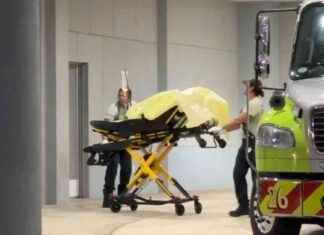The coverage of health professional positions in rural areas is a widespread problem, but it has a special impact in Catalonia, where three quarters of the population live in an urban environment that only occupies 15% of the territory. 25% of the population is distributed in 85% of the territory, with problems finding doctors or nurses.
The Department of Health has drawn up a new plan for filling places that are difficult to fill in primary care in rural areas, once it has identified, through a classification system, the primary care teams (EAP) affected by this deficit. Specifically, one in five Catalan EAPs is at a high or medium level in terms of difficulties in finding professionals.
All affected teams are located in rural areas. A total of 42 (36 from the ICS and 6 subsidized) are in the maximum level according to the Salut classification, and 32 (26 from the ICS and 6 subsidized) are in the medium category. Rurality is the most influential factor, and in this sense all the EAPs in the Alt Pririneu-Aran health region are on the list and in the highest grade.
Salut has used six indicators to evaluate the degree of difficulty in filling places in the 376 Catalan EAPs, on a scale of 1 to 12. 79% of basic health areas have little or no problem completing the templates (score of 1 to 3), while 21% (between 4 and 12 points) have quite a few or many problems in this regard.
The factors used are high rurality (less than 7,500 inhabitants in the largest center of the EAP and a population density of less than 100 inhabitants/km2), the distance from the EAP to the nearest hospital (threshold of 25 km), seasonal overload ( percentage of unassigned population served, especially in sea and mountain tourist areas), monthly average number of guards in relation to the staff, distance to the office (travel time from the primary center to the different local offices) and age of the patient population (percentage of patients over 64 years of age).
Coverage difficulties affect primary and community medicine physicians, paediatricians, nurses, midwives or healthcare workers. With the deficient EAPs identified, the Minister of Health, Manel Balcells, presented this morning in Flix (in the Terres de l’Ebre region, it has an EAP that covers 7,362 inhabitants and is at a high level of difficulties to cover the templates) the plan to fill positions that are difficult to fill in rural areas.
This year, the plan represents an impact of 11.5 million on the Health budgets, dedicated to attracting and retaining professionals through incentives, mainly economic. Thus, since January 1, a supplement of difficult-to-fill positions of between 3,500 and 4,000 euros per year for doctors and paediatricians and 2,000 for nursing has been stipulated.
At the same time, Salut seeks to encourage good work dynamics with measures such as the creation of teaching units in the territory to promote the development of professionals or the flexibility of the working day to facilitate work-life balance.
Likewise, Salut will collaborate with the Department of Social Rights and with municipal and supra-municipal institutions to contribute with “talent attraction” mechanisms. Incentives are proposed such as housing, a vehicle, occupancy facilities for the couple, guaranteed places in schools, discounts on tolls, subsidies for training or the guarantee of technological connectivity.








